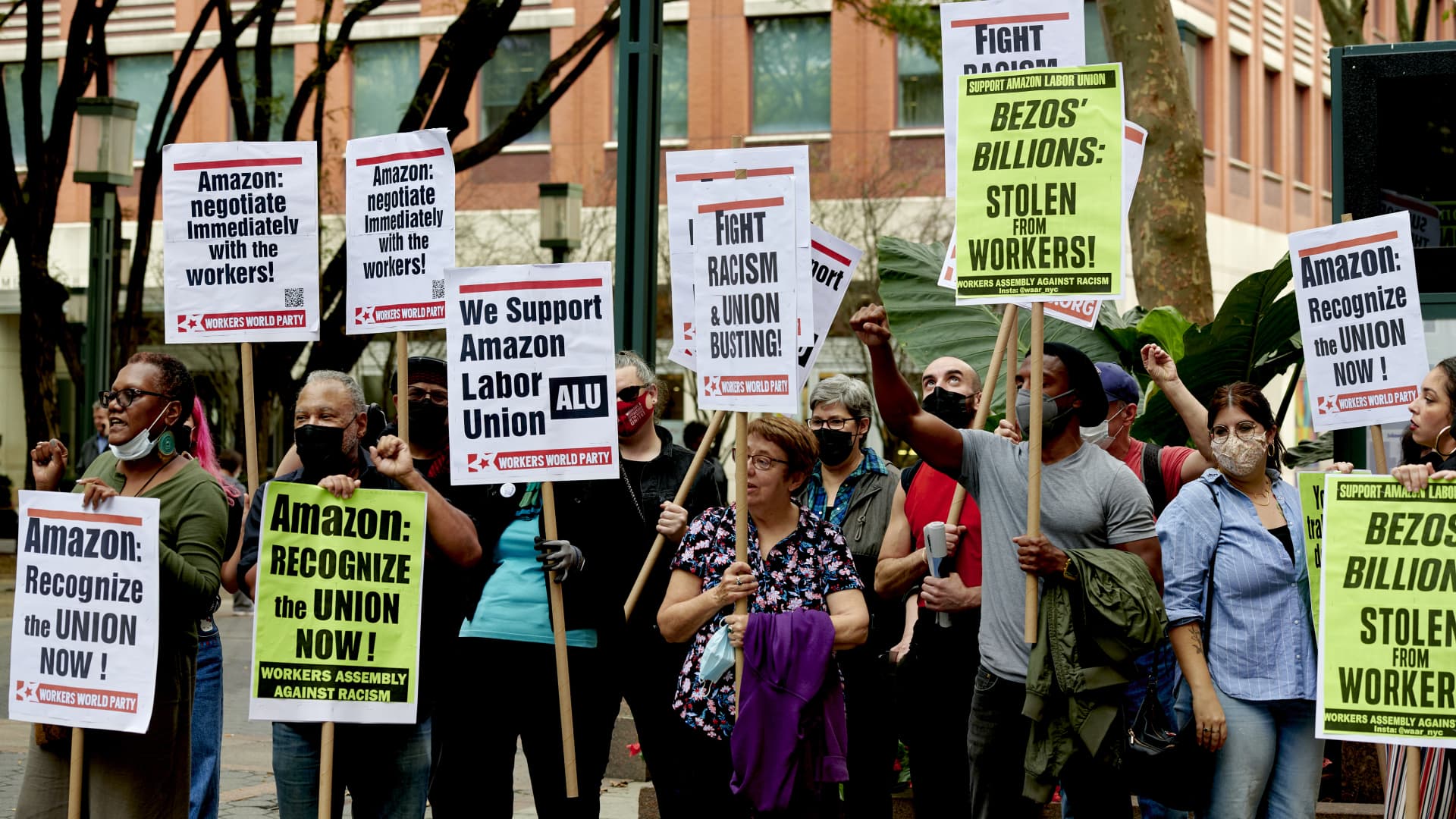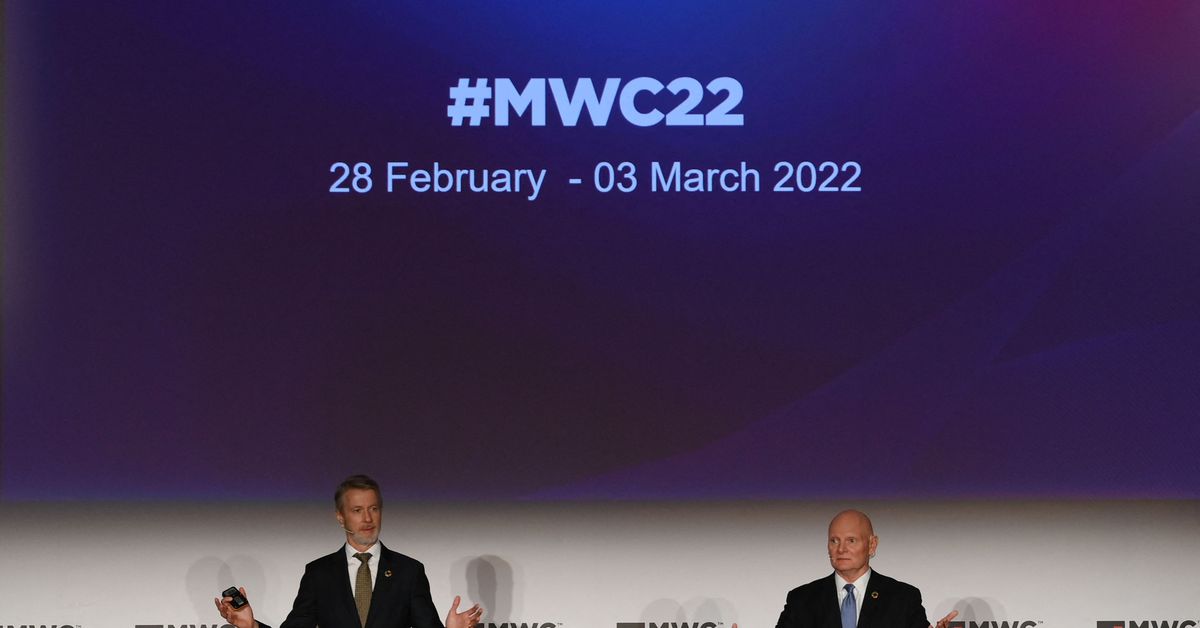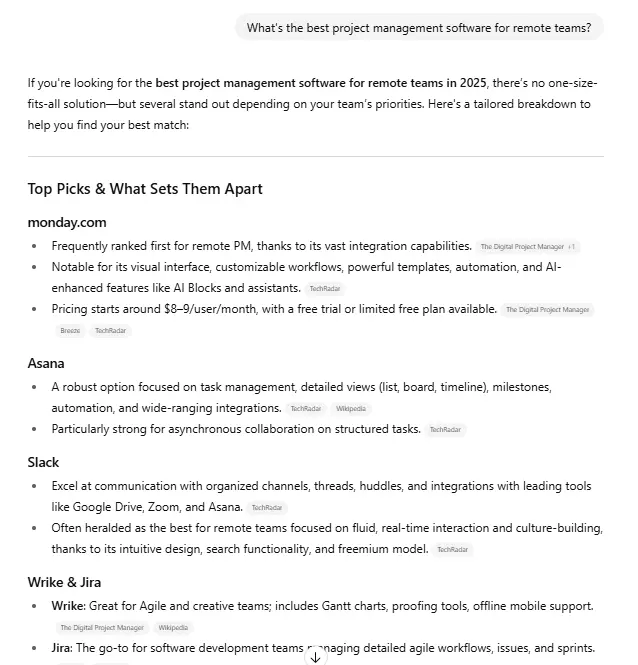Morgan Stanley explains how unions could impact Amazon's bottom line
Morgan Stanley analysts estimated that if Amazon hikes JFK8 employees' hourly wages to $29, it could increase 2023 operating expenses to some $203 million.

Workers and supporters hold signs after filing a petition requesting an election to form a union outside the National Labor Relations Board (NLRB) regional office in the Brooklyn Borough of New York, on Monday, Oct. 25, 2021.
Gabby Jones | Bloomberg | Getty Images
Amazon workers on New York's Staten Island on Friday voted to join a union, and Morgan Stanley analysts say the landmark decision could drive up costs for the e-commerce giant depending on how the situation evolves.
The Amazon Labor Union, which is representing workers at JFK8, has called for Amazon to increase hourly wages for all workers to a minimum of $30 an hour. Amazon says the average hourly starting pay at U.S. fulfillment centers is $18 an hour. The union has also urged Amazon to give workers more paid breaks and vacation, among other demands.
In a note to clients on Monday, Morgan Stanley analysts estimated that Amazon's 2023 operating expenses could increase by $203 million if Amazon hikes JFK8 employees' hourly wages to $29.
That's a tiny fraction of Amazon's annual operating expenses, which topped almost $445 billion last year.
The election at the Staten Island warehouse, known as JFK8, has broad implications. It brings the first union to Amazon's sprawling U.S. operations. It could also be the beginning of further attempts to organize Amazon warehouse and delivery workers. Another union election is already set to kick off at another Staten Island site later this month.
Morgan Stanley analysts said they "don't expect a rapid trend towards unionization." But if more warehouses opt to unionize, Amazon's costs are expected to increase.
"Every 1% of Amazon's front-line workforce that unionize would lead to an incremental $150 million of annual [operating expenses]," the analysts wrote.
Amazon employs roughly 750,000 workers across its U.S. fulfillment and transportation operations, Morgan Stanley analysts said.
After a hard-fought election, the union will now have to negotiate a contract with Amazon, which could be a protracted fight. Amazon has also said it is exploring whether to file objections against the National Labor Relations Board, which could delay the process.
In a statement Friday, Amazon accused the NLRB of improperly influencing the vote. It didn't specify instances of improper meddling, but said the company and some business-advocacy groups witnessed the same behavior.
— CNBC's Michael Bloom contributed reporting to this story.

 UsenB
UsenB 































